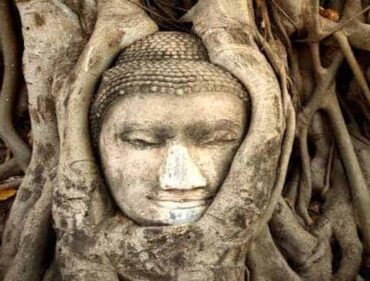Blog: The Inspiring Activism of Rigoberta Menchu
By Isa Gucciardi, Ph.D.
Rigoberta Menchú Tum is an activist for indigenous rights in Guatemala. She was born to a poor family of K’iche’ Maya descent in rural Guatemala at the beginning of the country’s civil war, which lasted from 1960 to 1996. She became an activist against human rights violations committed by the Guatemalan armed forces during the war.
The war reached its peak in the 1980s, and she lost many family members to the atrocities committed by the Guatemalan government and army. Her mother and one of her brothers were kidnapped, tortured and murdered by the army. Her father, who was influential in helping her develop her views, died in a hostage situation. Another brother was shot to death by soldiers. Like her, they were members of the Committee for Peasant Unity, an activist group formed to advocate for indigenous rights.
Like many other Mayans, Rigoberta fled to Mexico to escape death and continue her activist work. She overcame poverty, a lack of education, and tremendous personal hardship to become one of the strongest voices for indigenous rights, eventually co-founding the United Republic of Guatemalan Opposition.
Since the end of the war, she has campaigned to have Guatemalan political and military establishment members tried in Spanish courts. After initially rejecting these lawsuits, Spain eventually extradited seven former members of Guatemala’s government on charges of genocide and torture. In January 2015, a Guatemalan court convicted a police commander of murder, attempted murder, and crimes against humanity for his role in the hostage situation where her father died.
In 1982, Rigoberta narrated a book about her life in the “testimonio” style. Her activities had irritated the authorities to the point where they sought to discredit her work with negative press and accusations about the inaccuracy of her reported experience. Nonetheless, the book remains an important document about the struggle for equality, mutual respect, and the importance of advocating and caring for those who have no voice. It is titled Me llamo Rigoberta Menchú y así me nació la conciencia, which translates to My Name is Rigoberta Menchú, and this is how my Conscience was Born).
The book begins, “My name is Rigoberta Menchu. I am twenty-three years old. This is my testimony. I didn’t learn it from a book and I didn’t learn it alone…The important thing is that what has happened to me has happened to many other people too: My story is the story of all poor Guatemalans. My personal experience is the reality of a whole people.”
The book made her famous internationally, and it was translated into many languages. With her book, she made the world aware of the native peoples’ situation in a way that had never been done before. During the many speeches she made about her people’s plight, she said, “the justification for our struggle was to erase all the images imposed on us, all the cultural differences, and the ethnic barriers, so that we Indians might understand each other in spite of different ways of expressing our religion and beliefs.”
In 1992, she was awarded the Nobel Peace Prize “in recognition of her work for social justice and ethno-cultural reconciliation based on respect for the rights of indigenous peoples.” Her love for the earth, her striving for mutuality, mutual respect, nurturance, and consensus shines through the opening words of her acceptance speech:
“When evaluating the overall significance of the award of the Peace Prize, I would like to say some words on behalf of all those whose voice cannot be heard or who have been repressed for having spoken their opinions, of all those who have been marginalized, who have been discriminated, who live in poverty, in need, of all those who are the victims of repression and violation of human rights. Those who, nevertheless, have endured through centuries, who have not lost their conscience, determination, and hope.”
On at least three occasions, Rigoberta Menchú Tum has returned to Guatemala to plead the cause of indigenous people, but death threats have forced her to return into exile. Undaunted, she continues to fight for the rights of the poor and disenfranchised while living in exile, offering them a seemingly endless well of “conscience, determination, and hope.”
Author’s Note: I find inspiration in the stories of people who have seen a need and tried to meet it. Be they healers, activists, politicians, leaders, or every day people who do the right thing in a difficult situation. These are people who stand up to oppression, or try to bring justice to places where none exists. For that reason, I have decided to create this series on Inspiring People.
ENJOYING THE STREAM OF CONSCIOUSNESS BLOG? SIGN UP FOR FREE UPDATES!



